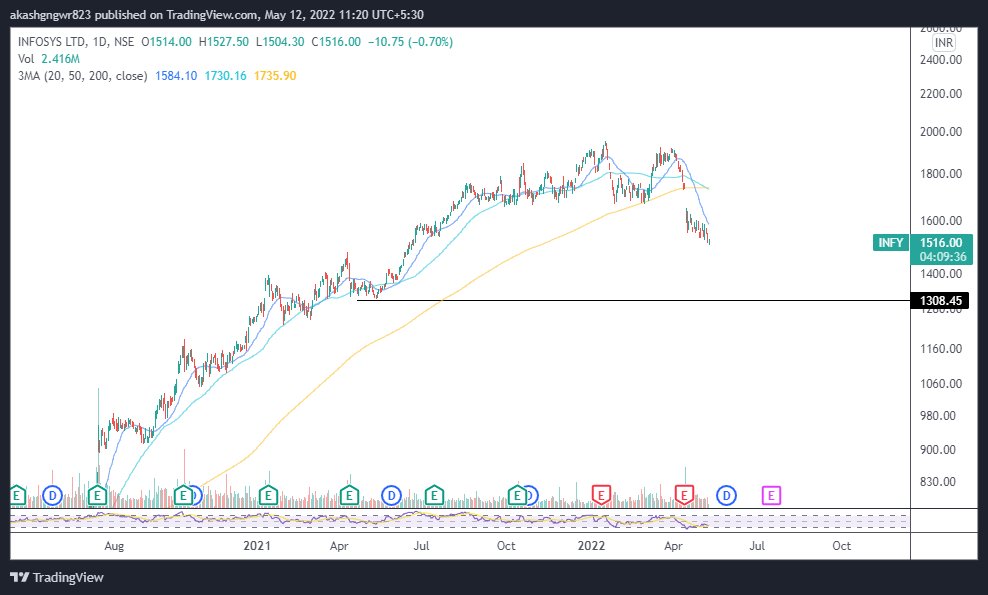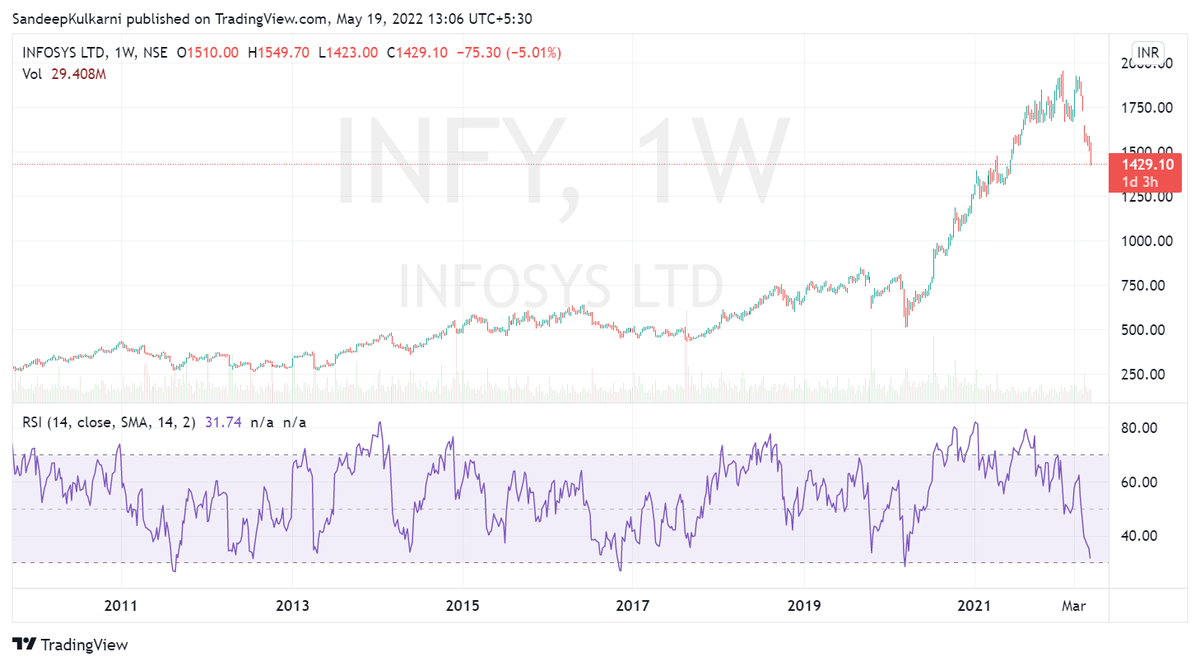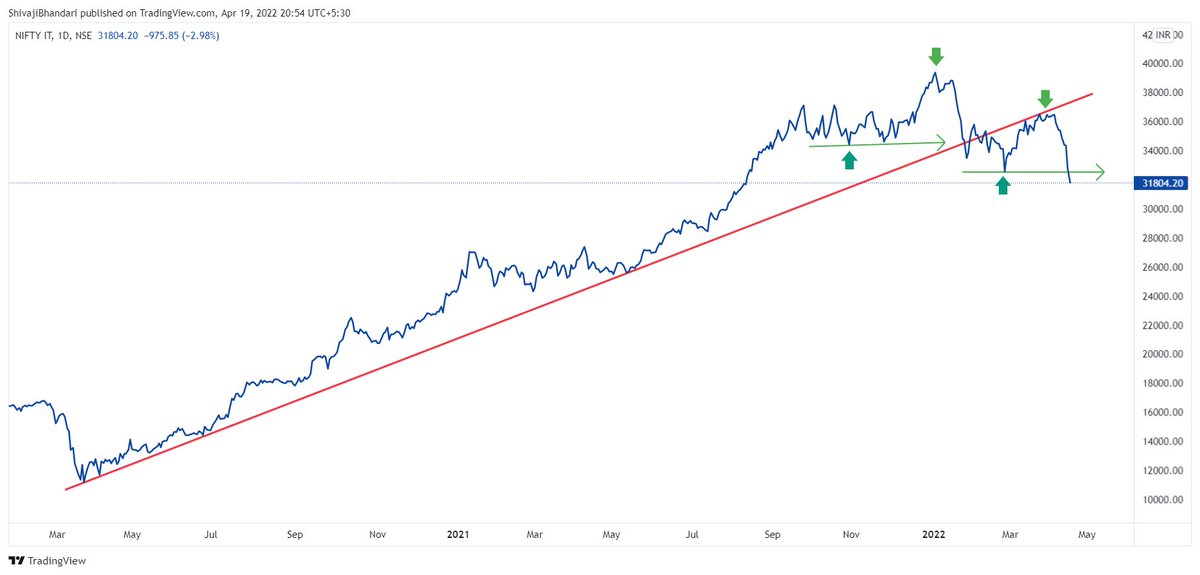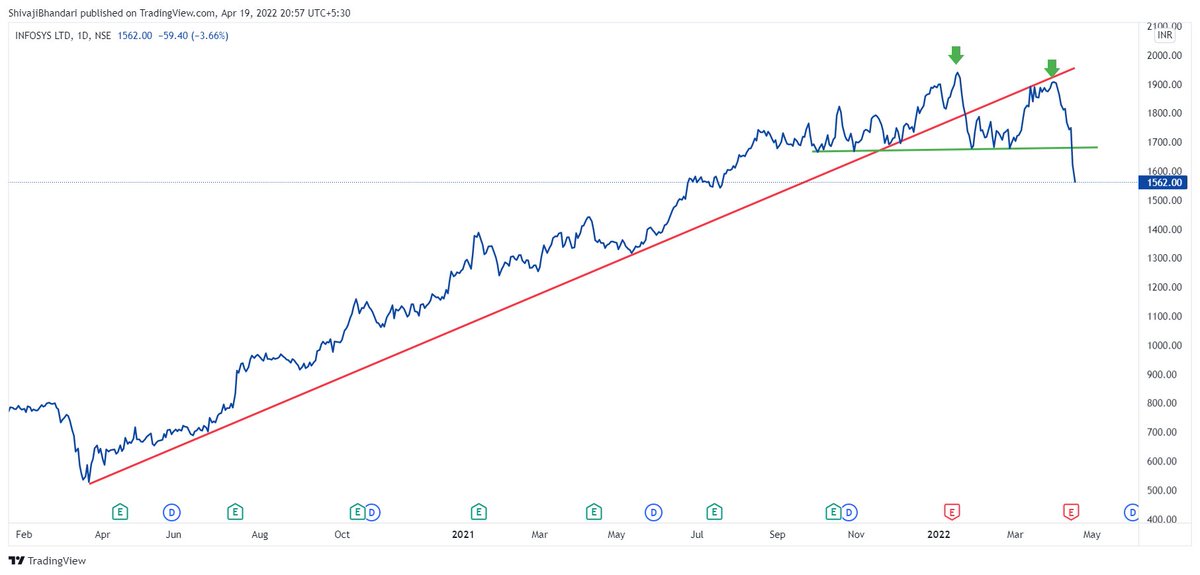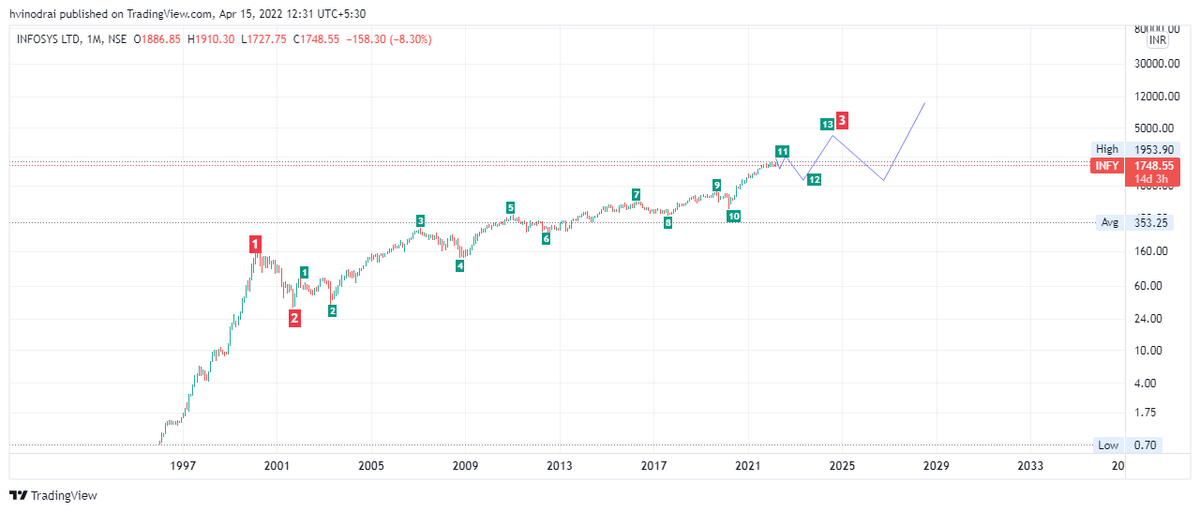Correction in #infosys 🔻
feb'07 - oct'08 ---- -57%
jan'11 - aug'11 ---- -38%
apr'16 - may'17 ---- -34%
oct'19 - mar'20 ---- -40%
Learning after a deep correction it stands today at 1748 which is the example clear a great INVESTMENT on dips.
#investing 👍
More from Sachin Jain 🇮🇳
🧵 STOP wasting time searching for stocks.
Unlock the stock screener that makes it easy:
Check out the stocks that have broken through their 52-week highs on https://t.co/qBvDaqyp9R. They are some of the strongest in the market, so be sure to consider technicalities when trading them.
You've definitely heard of Darvas. Here's your chance to put his strategy into action: https://t.co/bk82BA8MMF

Intraday lovers: https://t.co/7Y866T9bRt

Do you know that narrow range breakout gives a punching returns in short span- https://t.co/vYfluY3TEH

Unlock the stock screener that makes it easy:
Check out the stocks that have broken through their 52-week highs on https://t.co/qBvDaqyp9R. They are some of the strongest in the market, so be sure to consider technicalities when trading them.
You've definitely heard of Darvas. Here's your chance to put his strategy into action: https://t.co/bk82BA8MMF

Intraday lovers: https://t.co/7Y866T9bRt

Do you know that narrow range breakout gives a punching returns in short span- https://t.co/vYfluY3TEH

More from Infylongterm
1.6x PEG on forward PE is not cheap for most stocks but this is Infy...Pristine quality.
Infosys PEG ratio (1-year fwd PE/EPS growth) down to 1.4x from a peak of 2.7x as PE cut by 27% & EPS growth cut by 5% - trades at 23.3x PE for 11% FY23 growth. If this is a mid-cycle correction, its done BUT if this is the great valuation reset - more fall coming
— ThirdSide (@_ThirdSide_) May 25, 2022
Place your bets pic.twitter.com/9ZlaLDcxPZ






